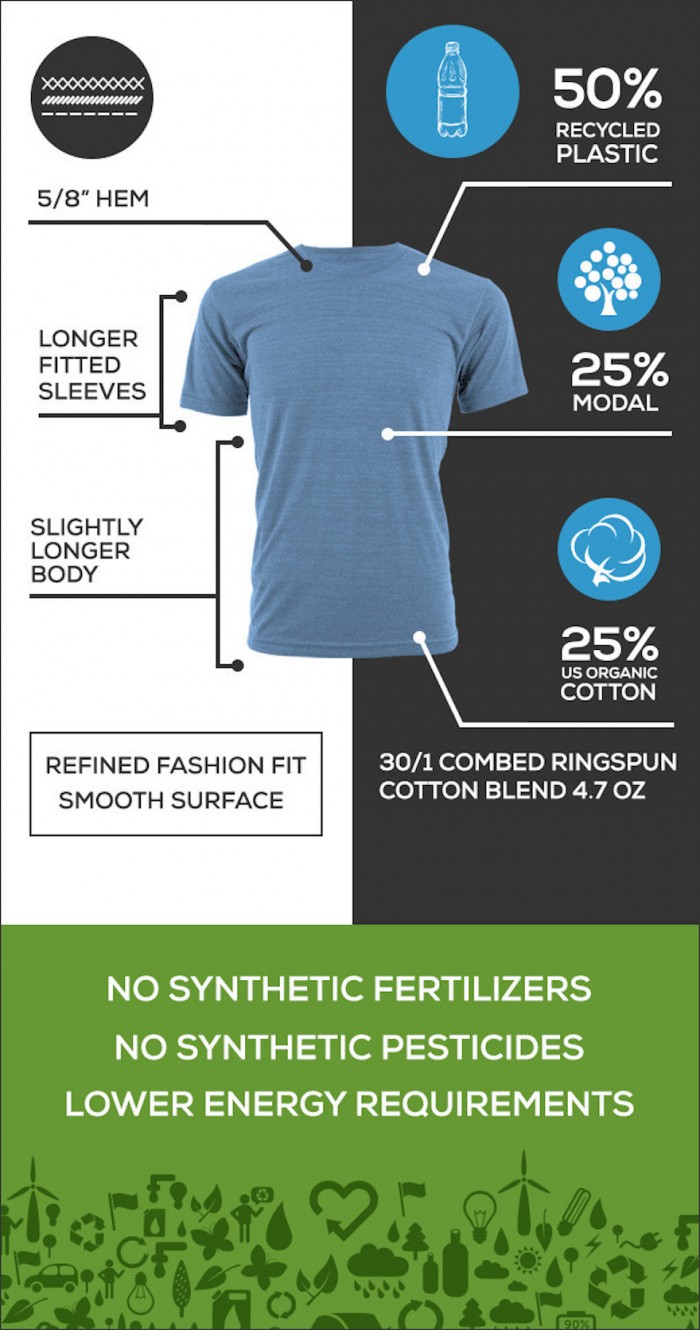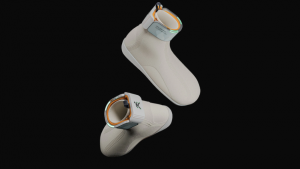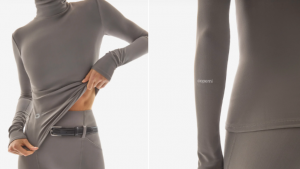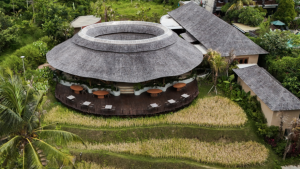Recently launched on crowdfunding website Indiegogo, Allmade is described as the t-shirt you can feel good about. This is in reference to the massive strain the textile industry puts on the environment and underpaid, overworked factory staff. Allmade t-shirts are made from recycled plastic and organic cotton, sewn in Haiti for a living wage, with proceeds going to orphan prevention and care.
According to their campaign, each shirt contains the equivalent of three plastic bottles. It’s made of sustainable fibres and recycled cotton from the United States. It’s made in Haiti at 5-times the going wage and its founders have partnered with the Global Orphan Project to create dignified living-wage jobs at their production facility.
“Twenty minutes on Google will teach you everything you need to know about the environmental damage done by cotton, plastic, and the profit-first practices of the apparel industry. But the Allmade story starts when we travelled to Haiti together,” reads the company’s campaign.
“We experienced first-hand the economic and environmental devastation endured by garment workers and realised what a positive impact we could have by creating dignified living wage jobs that empower the proud people of Haiti to take care of themselves and their families.”
We’re thinking more critically about what we wear. Most recently, East Africa has been pegged as a region to watch in the ethical fashion industry. In Kenya, Tosheka Textiles is known for their eco-friendly textiles for the home, apparel and accessories. Handcrafted using natural fibres and eco-friendly dyes and traditional weaving methods, Tosheka Textiles is imbued with the colours and textures of the Kenyan landscape.
“Africa has become a focus right now,” said founder Lucy Bigham. “Many buyers have become conscious of what they’re buying and what they’re selling.”
Bigham was speaking at a convention of East African makers in Las Vegas, USA in February. Also among 50 exhibitors was Sylvia Owori, a Ugandan businesswoman who launched her ethical fashion line in 2004. She has recently launched a t-shirt range and a collection of bags made from recycled denim.
“I wanted people to identify with the Sylvia Owori brand as an ethical brand, and on top of that, one that uses local women,” Owori was quoted as saying. “It was about creating and empowering women through creating employment and thus giving them a chance to have economic stability.”







